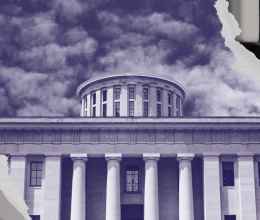CLEVELAND - The American Civil Liberties Union of Ohio filed a lawsuit today in U.S. District Court for Northern Ohio challenging a law that prevents formerly incarcerated felons from circulating petitions. Those who have been convicted of a felony, but are not incarcerated, have a right to vote in Ohio; however, they cannot circulate the petitions that help decide who and what will appear on their ballot.
“Formerly incarcerated Ohioans have a fundamental right to participate in civic life once they have served their time,” said ACLU of Ohio Legal Director James Hardiman. “In the last year alone, Ohio has seen ballot issues on a wide array of important concerns. By denying citizens the right to participate in these processes, state legislators continue to punish them long after they have paid their debt to society.”
In 2006, Ohio passed a law declaring anyone who has been convicted of a felony “incompetent” to circulate petitions. A 2010 opinion from former Ohio Attorney General Richard Cordray attempted to clarify the issue, opining that the ban is lifted once an inmate completes parole. However, fear of running afoul of the original law and uncertainty about the validity of signatures has left those with a felony conviction effectively barred from exercising their constitutional rights.
This law has also chilled the activities of organizations who wish to employ the formerly incarcerated. One of the plaintiffs in the ACLU of Ohio lawsuit is ProgressOhio, a non-profit political advocacy organization that often circulates petitions. In order to ease their re-entry into society, ProgressOhio would like to hire some formerly convicted Ohioans for petition circulation and voter registration drives. However, fear of the current law keeps them from doing so.
The suit also represents two individual plaintiffs, both registered voters who are politically active in their community. These plaintiffs argue that despite their past felony convictions, they have a constitutional right to petition their government.
“The right to petition is one of the cornerstones of our way of life,” said Hardiman. “We should be encouraging more of our citizens to exercise these fundamental rights, not enacting legislation that permanently disenfranchises an entire segment of the population.”






